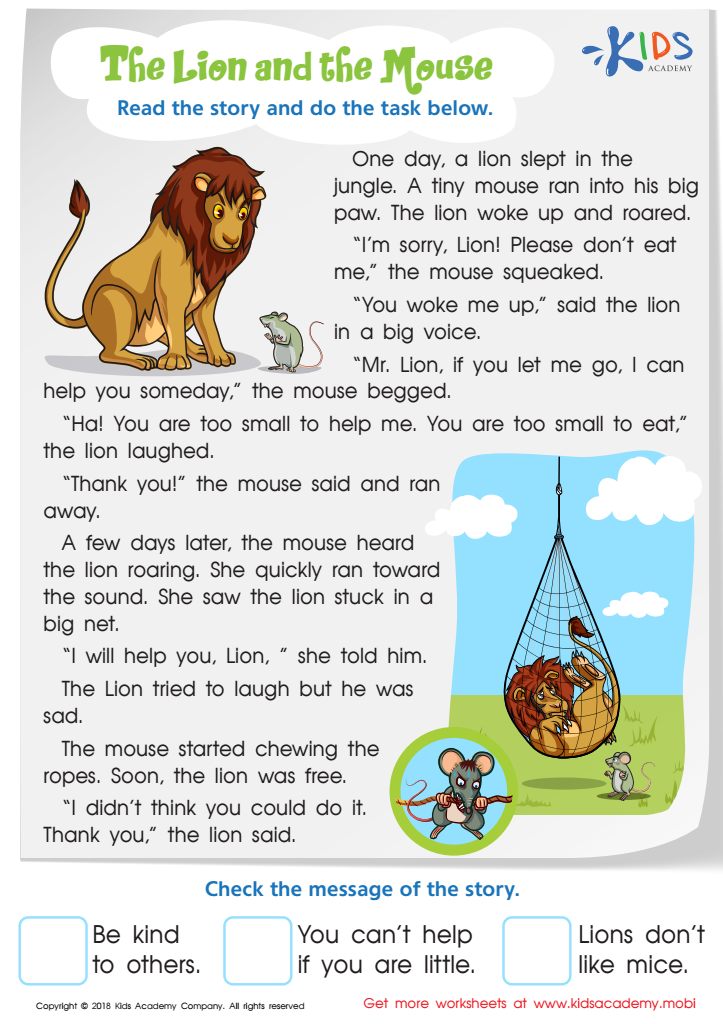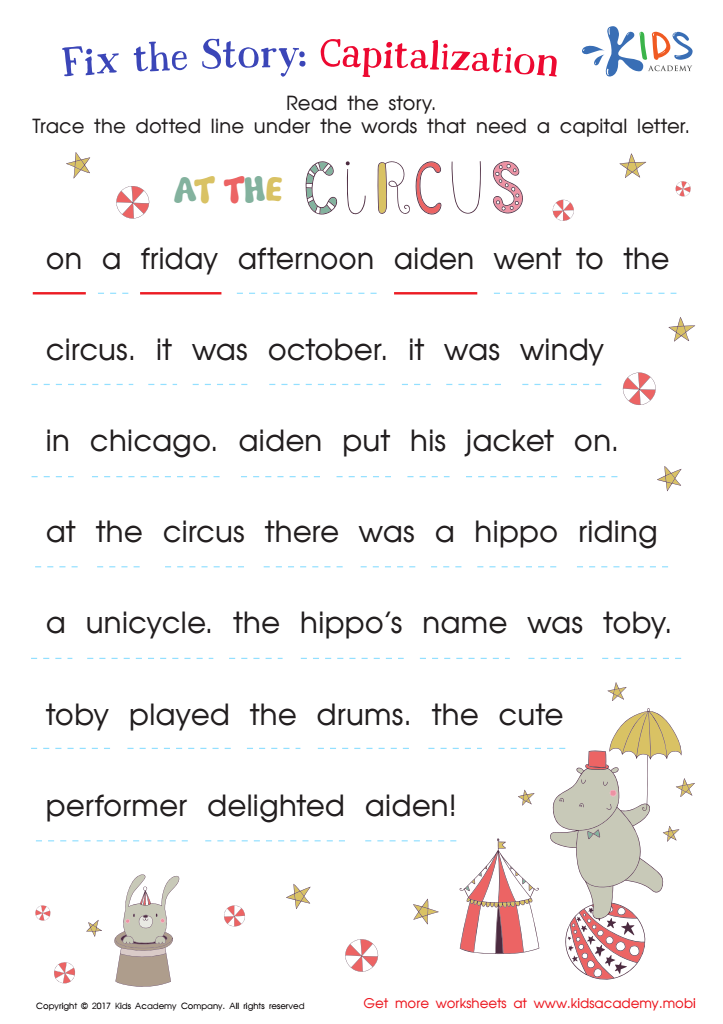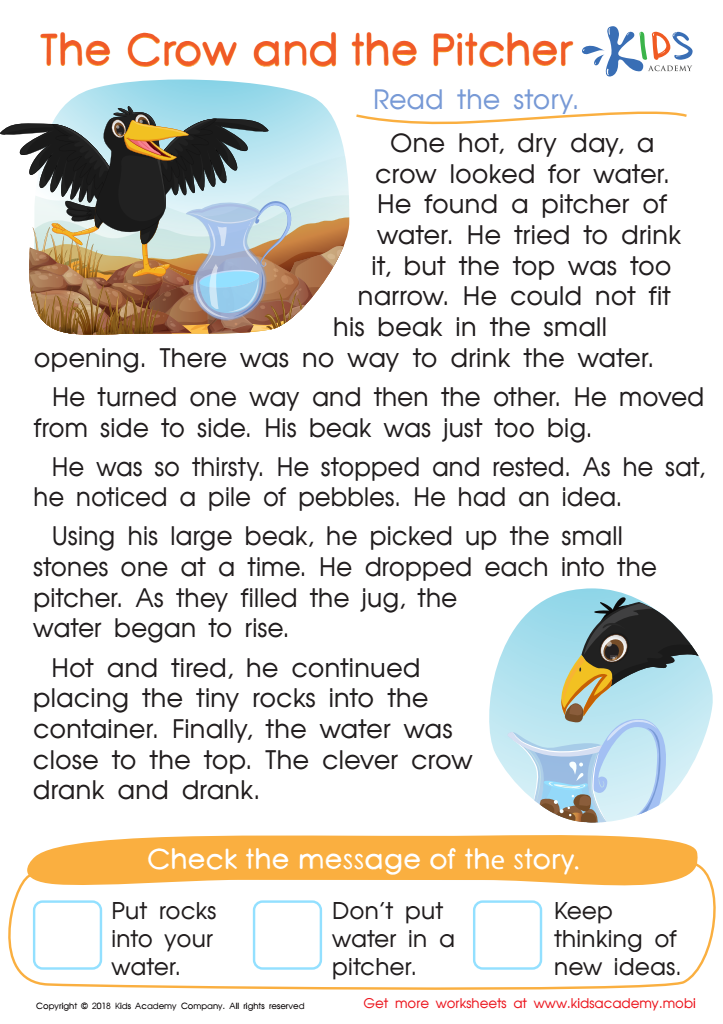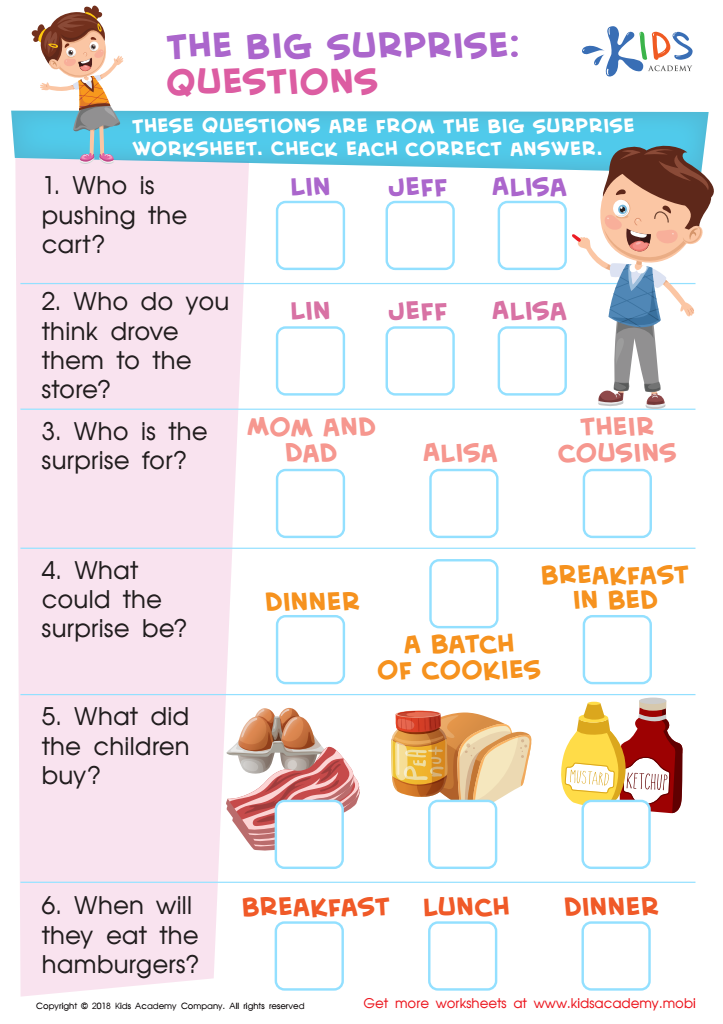Critical Thinking Writing Worksheets for 8-Year-Olds
4 filtered results
-
From - To
Discover our engaging Critical Thinking Writing Worksheets for 8-year-olds, designed to enhance analytical and creative skills through fun and thought-provoking activities. These worksheets encourage kids to develop their reasoning and problem-solving abilities while fostering a love for writing. With diverse prompts and interactive exercises, children will examine scenarios, make predictions, and articulate their thoughts clearly. Perfect for independent practice or guided learning, our resources empower young learners to think critically and express their ideas confidently. Elevate your child's educational journey with worksheets that challenge their mind and inspire imaginative writing today! Ideal for home or classroom use.


The Lion and the Mouse Worksheet


Capitalization: Fix the Story Worksheet


The Crow and the Pitcher Worksheet


The Big Surprise: Questions Worksheet
Parents and teachers should prioritize critical thinking writing for 8-year-olds because it is a foundational skill that equips children to navigate the complexities of the world. At this age, children are developing their ability to analyze, evaluate, and express their thoughts clearly. Encouraging critical thinking through writing helps them become independent thinkers who can formulate their ideas and opinions rather than simply accepting information passively.
Moreover, critical thinking writing fosters creativity and problem-solving skills. Children learn to consider multiple perspectives, weigh evidence, and articulate their reasoning, which are invaluable skills in academic and real-world scenarios. By engaging in critical thinking writing exercises, they develop confidence in their voice and the ability to persuade others with well-structured arguments.
Additionally, fostering these skills at an early age supports emotional intelligence by helping children articulate their feelings and viewpoints. This capability is essential for effective communication and cultivating empathy towards others. In a rapidly changing world, children equipped with strong critical thinking skills can adapt, innovate, and approach challenges with resilience. Ultimately, nurturing critical thinking writing not only enhances literacy development but also prepares children to be thoughtful, engaged citizens in their communities.
 Assign to My Students
Assign to My Students








.jpg)










